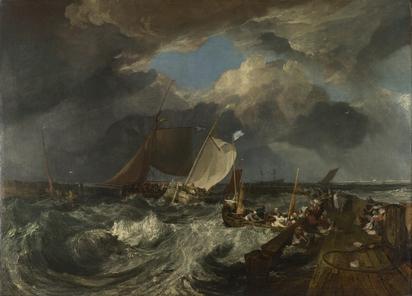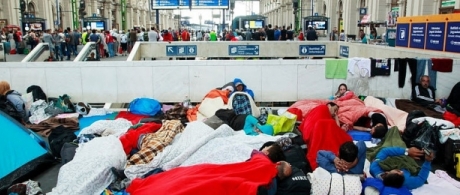
Ένα καΐκι φθάνει στην προβλήτα του Καλαί. 1803, Joseph Mallord William Turner. NATIONAL GALLERY
Την 1η Αυγούστου 1686, στις οκτώ το πρωί, ένα μικρό πλοίο αγκυροβόλησε έξω από την ακτή του Ντόβερ. Μεταξύ εκείνων που σύρθηκαν στην παραλία ήταν ένας 26χρονος Καλβινιστής Γάλλος από το Calais, ο Ισαάκ Μινέ (Isaac Minet). Ο Minet είχε τελικά καταφέρει να αφήσει την πατρίδα του μαζί με την 65χρονη μητέρα του, Σουζάν, την μικρότερη αδελφή του Ελισάβετ, και 15 άλλους άνδρες, γυναίκες και παιδιά. Στην περιοχή του Calais, η ανάρρηση του Λουδοβίκου του 14ου, του πιο Καθολικού μονάρχη, στον θρόνο της Γαλλίας προανήγγειλε την αύξηση της κρατικής δίωξης εναντίον της προτεσταντικής μειονότητας.

